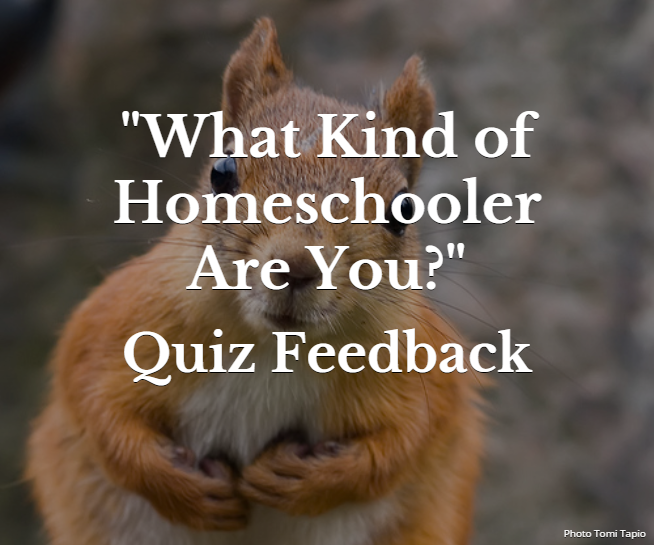 If you have recently taken the “What Kind of Homeschooler Are You?” quiz, I’d love your feedback.
If you have recently taken the “What Kind of Homeschooler Are You?” quiz, I’d love your feedback.
I’m listing the questions from the quiz according to their categories. If you think a question should be worded differently or if you feel that an important part of the philosophy is not reflected in the questions, please share your feedback in the comment section. If there is an approach that I missed, please share that as well.
Classical
- Great books from history and literature should be used in place of textbooks.
- Learning to write clearly and use elegant language is important.
- I desire my children to have a rigorous education.
- Latin and logic are important subjects.
- Instruction should be language-based with little use of screens.
Waldorf
- Art, music, gardening, and foreign language are important subjects.
- Early childhood should emphasize creative play and formal learning should be avoided before age 7.
- Social responsibility, empathy, creativity, and free thinking are important in my children’s education.
- Learning is best done in larger blocks of time.
- Avoiding screens for children who are elementary age or younger is important.
Traditional (School at Home)
- I want to use curriculum similar to what is used in public or private schools.
- I prefer to purchase grade-level curriculum packages that are planned out for me.
- Being able to transition into a public or private school classroom is important.
- Tests and grades should be given in elementary or middle school.
- Our learning environment looks like a mini-classroom.
Unschooling
- Child-led learning is important.
- The parent’s role is to facilitate the child’s education and not to teach.
- Children will learn when they are ready.
- Learning is more effective when the child is interested.
- Learning how to learn is a priority.
Thomas Jefferson
- Early elementary years should focus on exploring the world with no formal lessons.
- Discussions are a major part of learning.
- A child’s passion for learning should drive their education.
- Education is the child’s responsibility.
- Parents should study and read while the child studies and reads.
Montessori
- The parent’s most important job in education is to teach the child how to learn.
- Parents should model a love for learning, a love for work, a curious nature, and read a lot.
- Education should include practical activities like household chores or handcrafts.
- Children should have long periods of uninterrupted time for child-led study.
- Children should learn at their own pace.
Charlotte Mason
- Short lessons with focused attention are better than big chunks of time.
- Living books are a great tool for learning.
- Learning ideas is more important than memorizing facts.
- Children should spend lots of time outside.
- It is better to study a wide variety of subjects than to focus mainly on reading, writing, and math.
Unit Studies
- Lessons that can be used with multiple ages and grades are best.
- Topical studies are a great way to learn.
- Incorporating many different subjects into one study is preferable.
- Living books, projects, and activities are preferable to textbooks, workbooks, and worksheets.
- Topical studies help children make connections between subjects.
Help us make the quiz better. We’d love your feedback!
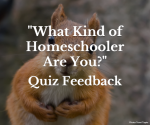
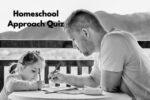

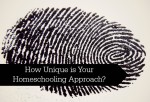
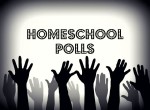


Score for Waldorf Education: 2
Score for Traditional Education: 20
Score for Unit Studies Education: 5
Score for Montessori Education: 17
Score for Thomas Jefferson Education: 15
Score for Unschooling: 3
Score for Classical Education: 9
Score for Charlotte Mason Education: 18
Thank you so much for making this quiz! It really helped me to find my path and curriculum. There are so many options out there and just knowing your style helped me to research what that meant and better find resources that fit our family.
I tell anyone who is interested in homeschooling to take it too. Everyone so far has loved it and learned a lot about themselves and what they value in education.
My three highest we’re unschooling, Montessori, and Unit Studies. While I agree mostly with these philosophies, I’m currently am using a school based curriculum just because I want a curriculum that is all planned out for me. Also I see the value in learning a variety of subjects and hands on experience, I ultimately feel reading, writing, and math are priority. Are there any curriculum that line up with my beliefs?
Montessori 16 – classical 13 Thomas Jefferson 11. Teaching my grandsons – boys need hands in tactile lessons to some extent. My son is teaching them math skills through machine tools and measurements. I am into relearning Latin – which helped me through many a science and language test. Lots of outdoor field trips looking for plants and bugs. I think U live in the wrong century – I can relate to Jefferson method.
Hi,
My score was
Score for Waldorf Education: 9
Score for Unit Studies Education: 9
Score for Montessori Education: 9
Score for Unschooling: 16
Score for Charlotte Mason Education: 12
My Ds has a Superior IQ but SPD so when I took him to an Education Physcologist she suggested either homeschooling or Waldorf, so I am greatful for all this info.
This is our first year and he is a happy, thriving little 7 year old
Regards
Natalie
South Africa
Hi! I saw online someone got Reggio-Inspired but this page doesn’t give a description of that.
Can’t seem to get my results?
2nd Time I’ve taken this test but I missed this page the first time. INTERESTING! I got a 0 for Waldorf both times and was wondering why because I was very drawn to it at first because of it’s gentle nature and how it taught through stories. We like computers though, so I knew that was an issue at odds with Waldorf but I thought I’d get some points for it still. But the large blocks of time though! I did not know that was part of Waldorf! I have a short attention span child so I’m very much pro the “quick lesson than break method.”
I have to laugh at the “Our learning environment looks like a mini-classroom” because while that is technically precisely true for us it doesn’t mean that our schooling is LIKE a classroom. I discovered early after withdrawing my child from school, that while he didn’t like to do school work, he loved to “play school.” So, we set up a dry erase “blackboard,” set up his toys in rows, pretended that the teacher took role, introduced new students, even did “centers,” and sent the students home to their bins in “busses” at the end of play school. BUT in between all that pretend play, I was teaching real lessons as a toy dinosaur….and he was learning real stuff pretending to be a student (stuff that he would cry about having to do, or lay his head down just refuse to try otherwise). And I also discovered that he wasn’t as scared to attempt new things and didn’t worry about making mistakes as much when he was in this pretend world.
I think you should use another term for living books (or define it)…because a new homeschooler wouldn’t understand what that means.
unschooling parents still teach their children. they just don’t “stand and teach” like a “professional teacher” would. unschoolers absolutely teach their children, every unschooler i know who took this quiz felt the same way about that particular piece of this. unschooling is one thing, unparenting is another.
That’s interesting. I agree with every point in the description for unschooling except for the parent doesn’t teach. It would probably have been higher on the list instead of a close fourth if it was worded differently.
Score for Waldorf Education: 0
Score for Traditional Education: -3
Score for Unit Studies Education: 6
Score for Montessori Education: 14
Score for Thomas Jefferson Education: 3
Score for Unschooling: 14
Score for Classical Education: -3
Score for Charlotte Mason Education: 15
I have actually thought that the 3 highest were indeed my ‘style’ of teaching. And yet I do not know if my style suits my child… or even how to deliver on what I can do. How does one find the balance of what the child needs and you yourself can do? Sorry, new to this and finding myself overwhelmed with a child with learning difficulties.
I found it best to jump in and adapt as necessary. Adapting is a huge part of the process in the first couple years of homeschooling. You will figure it out.
The scores are interesting and have helped me to kind of form the type of method I will be using. The scores were pretty much spot on. Thanks for this, as a newbie, this helps a lot.
Score for Waldorf Education: 5
Score for Traditional Education: -5
Score for Unit Studies Education: 13
Score for Montessori Education: 8
Score for Thomas Jefferson Education: 5
Score for Unschooling: 13
Score for Classical Education: 8
Score for Charlotte Mason Education: 18
There are a lot of questions that apply to other styles than just the one questioned about such as: Montessori’s handcrafts and a child’s uninterrupted time (as CM calls “masterly inactivity”) apply to CM as well; Waldorf’s “art, music, gardening and foreign language” strongly applies to CM; and Classical’s “great books…used in place of textbooks” and “Latin..important subjects” are also CM.
Enjoyed the quiz, thank you! Since my little ones are 2-3 years away from kindergarten, I found the quiz informative, but wonder if any of the results would be different had the questions been more age group specific? I answered many questions with the neutral “neither agree or disagree” because my answer would depend upon the age of the child(ren). For example, “Child-led learning is important” would be a disagree for me in the elementary age years, but would be agree from the mid-middle school years and up. Or “short lessons with focused attention are better than big chunks of time.” would be a strongly agree in the preschool and elementary years, but with each year that goes by, this answer increasingly changes to strongly disagree by the end of high school. In the end, it probably doesn’t matter for I assume we all are ever adjusting to our individual families and individual children with each week, month, year that passes, incorporating a multitude of homeschooling philosophies. Enlightening, still, in its current form.
We are classical homeschoolers through a Catholic curriculum that uses CM methodology for teaching, ie narration, living books, nature study/time outside, short lessons. I know there is much debate over it, but I always see CM as a kind of classical education. A resource for this style of education is Designing Your Own Classical Curriculum by Laura Berquist.
What do you use Rachel? Can you email me?? I am catholic and also love CM way of teaching! April.dehm@gmail
One of the unschooling ?s “learning how to learn is a priority” is a bit confusing because I believe in the unschooling philosophy that children don’t need to learn how to learn, it comes naturally to them. Maybe a better way of wording the ? That would go along more with unschooling would be, “giving children time & space to learn naturally is a priority.”
Also, the montisori ? “The parents most important job in education is to teach the child how to learn” might be better worded to teach the child new skills, or how to preform certain tasks. From what I understand of Montisouri the child is taught how to work a certain way with each manipulative & the learning comes through repetitive acts, but the child does not need to be taught how to learn, children are born with the capacity to learn.
I already knew I pulled a bit from all these philosophies except (school at home) but it was still fun to take the quiz. Thanks!
To me, learning gow to learn is teaching my children how to ask questions that will delve them deeper into a subject. And not just feeding them the information all infront of them.
Please excuse my ignorance, but what are topical studies? Is it studying or learning different subjects that don’t pertain to one another?
Topical studies would be incorporating many different subjects into one topic. For instance, if trains were the topic a topical study would cover things like the history of trains for history, the location of railroads for geography, timetables of railroads for math, stories about trains for reading/literature, how an engine works for science, etc.
Thomas Jefferson
” Early elementary years should focus on exploring the world with no formal lessons. ”
Another heavy focus on early education for TJEd is character training.
“Discussions are a major part of learning.”
This would be true of many variations of Classical Education, particularly for the Circe crowd who don’t really fall under the TJEd crowd.
” A child’s passion for learning should drive their education.”
This would apply to some unschoolers too.
” Education is the child’s responsibility.”
Again, many unschoolers would say this.
” Parents should study and read while the child studies and reads.”
Apprenticeships and mentors are major components for TJEd in the latter years.
The use of great books is critical to a TJEd, but not mentioned. Great books also fall under the category of Living Books and would fit Charlotte Mason too.